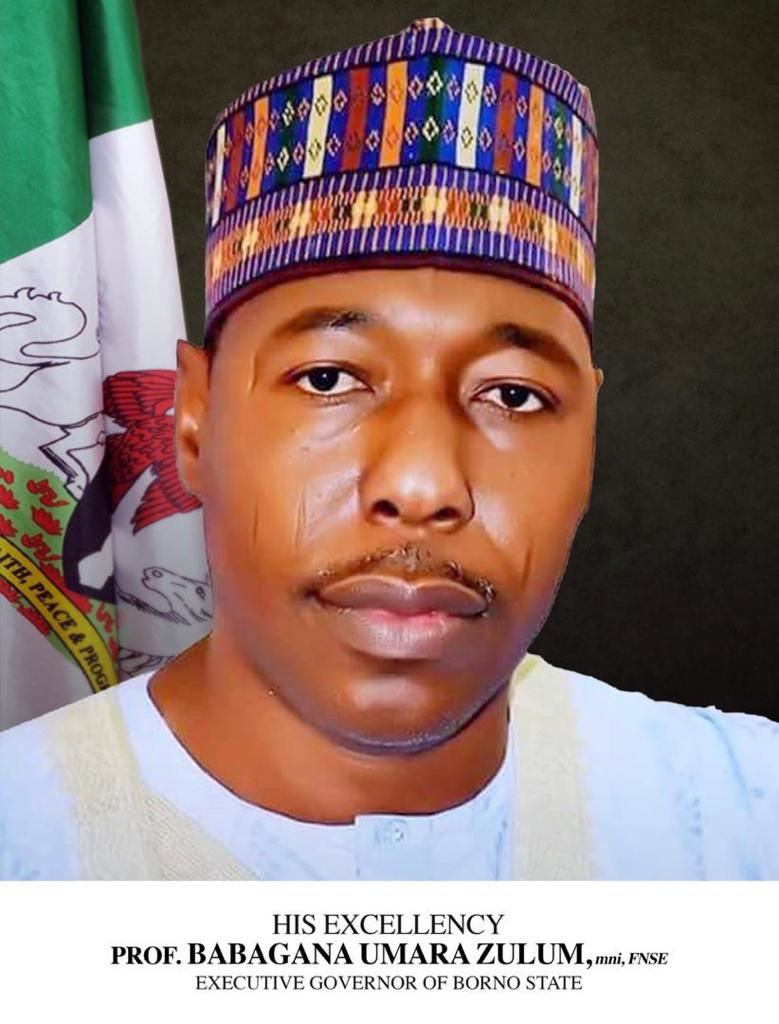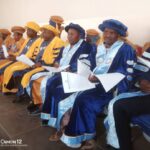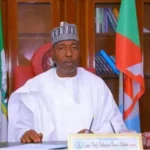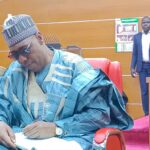Borno State Governor, Prof. Babagana Zulum, has announced a scholarship for about 100 indigenes of the state to study Quantity Survey in different institutions across the country.
The governor said there was need for the state to invest more in education, especially in Quantity Survey to produce qualified professionals that will handle various constructions going on in the state.
- Bandits kill 6 in Katsina villages
- 15 killed at Igangan, four months after sack of Fulani settlement
Zulum gave the directive while declaring open a two-day workshop organised by the Nigerian Institute Of Quantity Surveyors (NIQS) with the theme “Resources Schedule For Inclusive Development Of The Construction Industry.”
The governor directed the 27 local government chairmen to immediately submit the list of 3 indigenes each of theirs.
“The chairmen of the 27 LGAs are directed to submit 3 names from the less privileged members of their communities for immediate sponsorship,” Zulum said.
State has only nine surveyors
Zulum’s approval was to address the increasing demand for Quantity Surveyors in the state. Borno was reported to have only 9 registered surveyors, which is grossly inadequate in the face of ongoing reconstruction and rehabilitation.
“When I received the President of the Institute in my office, I was made to know that we only have 9 registered Quantity Surveyors in Borno State. We cannot allow this to continue,” Zulum declared.
In his remarks, the President of the Nigerian Institute Of Quantity Surveyors, QS Mohammed Abba Tor, FNIQS, said the choice of Borno for hosting the workshop was to recognise the tremendous infrastructural projects embarked upon by the Zulum’s administration in the last two years.
“The overall aim of the workshop is to penetrate the lower end of the construction industry market, thereby contributing optimally to sustainable national growth and development. It will dwell on techniques and key concepts of resource scheduling.
“Your ethics and professional integrity are of paramount importance while carrying out this responsibility, either as a government employee or to private clients, especially in the informal sector. I therefore urge you to quickly familiarise yourself with the revised Code of Ethics and Professional Conduct launched in November last year. Copies are available at the NIQS Secretariat for free.
“It is a collaborative effort between the NIQS and Bank of Agriculture Ltd aimed at creating public awareness to enable the citizens to take advantage of the different product offerings of the bank and expand their investment along the entire agricultural value chain. This is part of our institute’s corporate social responsibility,” he said.

 Join Daily Trust WhatsApp Community For Quick Access To News and Happenings Around You.
Join Daily Trust WhatsApp Community For Quick Access To News and Happenings Around You.


